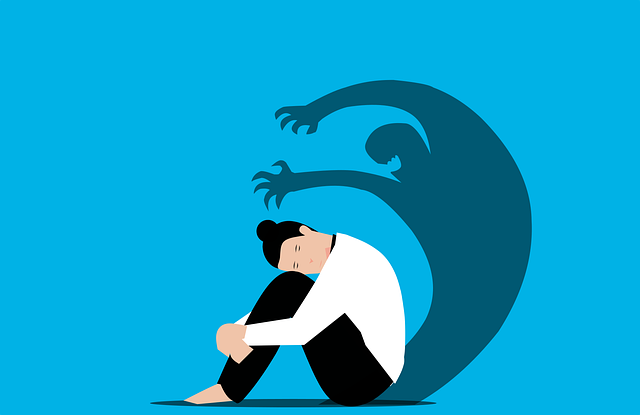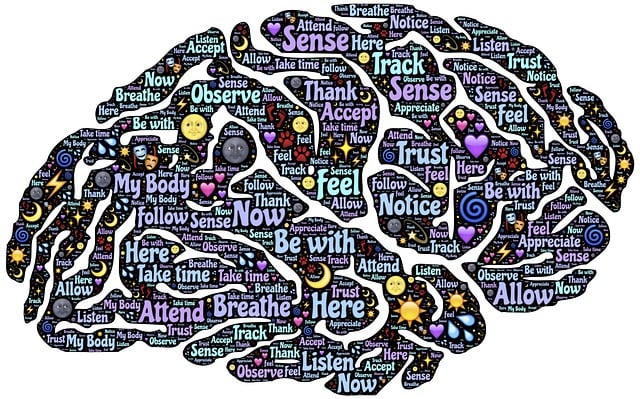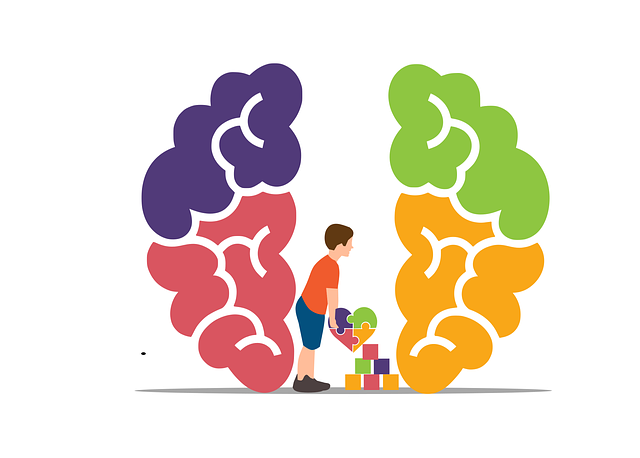Louisville Sexual Addiction Therapy offers a comprehensive depression prevention strategy that combines professional guidance with community engagement. Through evidence-based practices like CBT and mindfulness, they build resilience, reduce stress, and promote healthy lifestyles. This holistic approach includes individual therapy, support groups, workshops, and self-care techniques to address root causes and empower individuals to manage mental health effectively, preventing depressive episodes and fostering well-being in Louisville.
Depression is a serious yet treatable condition, affecting millions globally. This comprehensive guide explores effective prevention strategies, focusing on holistic approaches to mental well-being. We delve into recognizing depression’s subtle signs and symptoms, emphasizing the power of early intervention. Lifestyle changes, therapy, support groups, and building resilience are key topics, offering practical tools for navigating life’s challenges. For a unique perspective, we introduce Louisville Sexual Addiction Therapy, highlighting its comprehensive healing approach, showcasing a dedicated resource in tackling specific mental health concerns.
- Understanding Depression: Recognizing Signs and Symptoms
- Lifestyle Changes for Mental Well-being
- The Role of Therapy and Support Groups
- Building Resilience: Coping Strategies for Daily Life
- Louisville Sexual Addiction Therapy: A Comprehensive Approach to Healing
Understanding Depression: Recognizing Signs and Symptoms

Depression is a complex mental health condition that can significantly impact an individual’s daily life and overall well-being. Recognizing the signs and symptoms early on is crucial in preventing the escalation of this disorder. Many individuals may experience fleeting feelings of sadness or low mood, but depression persists as a persistent feeling of despair, hopelessness, and loss of interest in activities once enjoyed. It can manifest in various ways, affecting appetite, sleep patterns, energy levels, and even physical health.
At Louisville Sexual Addiction Therapy, we understand the intricate relationship between mental health and behavioral patterns. By recognizing the early warning signs, such as persistent sadness, changes in appetite or sleep, difficulty concentrating, feelings of worthlessness, or recurrent thoughts of death or suicide, individuals can seek help. Building resilience, practicing stress reduction methods, and improving communication strategies are all essential components in preventing depression and fostering a healthier, happier life.
Lifestyle Changes for Mental Well-being

In the quest for depression prevention, lifestyle changes play a pivotal role in enhancing mental well-being. Individuals in Louisville seeking support for sexual addiction therapy often benefit from holistic approaches that intertwine physical and psychological health. Regular exercise, sufficient sleep, and a balanced diet are cornerstones of this approach. These simple yet powerful tools can significantly reduce stress levels, boost mood, and improve overall resilience to adversity. For instance, community outreach program implementations focused on promoting active lifestyles have shown promising results in fostering better mental health among participants.
Moreover, empathy building strategies within support groups or therapy sessions encourage open communication and understanding, which are crucial for navigating the complexities of trauma support services. By fostering connections and sharing experiences, individuals can find solace and strength in community, a factor that contributes to preventing and managing depression effectively. These lifestyle changes, coupled with professional guidance, offer a comprehensive strategy to promote mental health and prevent depressive episodes.
The Role of Therapy and Support Groups

Depression prevention strategies often include a combination of professional support and community engagement. Therapy plays a pivotal role in addressing underlying issues that contribute to depressive episodes, providing individuals with tools to manage stress and emotional challenges. Louisville Sexual Addiction Therapy, for instance, offers specialized treatment tailored to address specific concerns related to sexual addiction, which can be a significant factor in mental health struggles. Through cognitive-behavioral therapy (CBT) and other evidence-based approaches, therapists help clients identify negative thought patterns, develop healthier coping mechanisms, and cultivate resilience.
Support groups are another crucial element of prevention strategies. These groups provide a safe and non-judgmental space where individuals can share their experiences, gain perspectives from peers facing similar challenges, and offer mutual support. Cultural sensitivity in mental healthcare practice is essential, ensuring that these support networks cater to the diverse needs of various communities. Additionally, Mental Wellness Coaching Programs Development focuses on empowering individuals with strategies for maintaining mental wellness over time, integrating Mind Over Matter principles to encourage self-care and personal growth.
Building Resilience: Coping Strategies for Daily Life

Building resilience is a key component of depression prevention, offering individuals tools to navigate life’s challenges with greater equanimity. Coping strategies for daily stressors can significantly impact mental well-being. Louisville Sexual Addiction Therapy, for instance, focuses on helping clients develop robust coping mechanisms tailored to their unique needs. Techniques such as mindfulness meditation, cognitive behavioral therapy (CBT), and stress management training empower individuals to confront triggers head-on and cultivate a sense of control.
Resilience Building goes beyond coping; it involves fostering a growth mindset, where setbacks are seen as opportunities for learning and strength. By integrating evidence-based practices into daily routines, individuals can enhance their ability to bounce back from adversity, thereby reducing the risk of depression. Mental Health Policy Analysis and Advocacy plays a crucial role in supporting these efforts by advocating for accessible resources and promoting community-wide understanding of mental health challenges, ultimately contributing to a more supportive environment for those seeking depression prevention strategies.
Louisville Sexual Addiction Therapy: A Comprehensive Approach to Healing

Louisville Sexual Addiction Therapy offers a comprehensive approach to healing, focusing on addressing the root causes of depression and sexual addiction. This holistic treatment involves a combination of individual therapy sessions, group support, and specialized workshops. By integrating Self-Awareness Exercises and Stress Management techniques, individuals gain insights into their behaviors and triggers, fostering personal growth and emotional resilience. Additionally, Resilience Building activities help clients develop coping strategies to navigate challenging situations, promote self-care, and ultimately prevent depressive episodes.
Through a nurturing and non-judgmental environment, Louisville Sexual Addiction Therapy empowers individuals to break free from destructive patterns, heal from past traumas, and cultivate healthier relationships. This comprehensive approach not only addresses sexual addiction but also equips clients with the tools needed to manage stress, enhance self-awareness, and build resilience—all vital components in preventing depression and promoting overall well-being.
Depression prevention is a multifaceted approach that combines understanding, lifestyle adjustments, and professional support. By recognizing signs early and adopting strategies like therapy, support groups, and building resilience, individuals can effectively manage their mental well-being. For those struggling with sexual addiction, Louisville Sexual Addiction Therapy offers a comprehensive solution, integrating various therapeutic methods to foster healing and long-term recovery. Remember that prevention is key, and with the right tools and resources, it’s possible to navigate life’s challenges with enhanced resilience and improved mental health.










